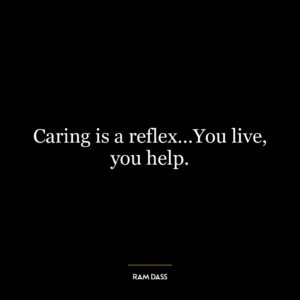Those particular thoughts that are painful – love them. I love them to death!
This quote is about the process of embracing and accepting all aspects of our inner selves, including the thoughts that cause us pain. It suggests that by loving and accepting these painful thoughts, we can ultimately overcome them. The phrase “I love them to death!” implies that by fully accepting and loving these thoughts, we can metaphorically ‘kill’ or dissolve the pain they cause.
The idea here is not to suppress or ignore the thoughts that cause us discomfort or distress, but to acknowledge and accept them. By doing so, we are able to understand them better, reduce their impact, and ultimately transform them. This concept is closely linked to mindfulness and meditation practices, where the focus is on observing thoughts and feelings without judgment.
In today’s world, this idea could be applied in various ways. In the context of mental health, for instance, it could be used as a coping mechanism for dealing with anxiety, depression, or other emotional challenges. Instead of attempting to push away distressing thoughts, one could try to accept and understand them, reducing their power to cause distress.
In terms of personal development, this concept could be used to promote self-acceptance and emotional growth. By accepting all parts of ourselves, including our painful thoughts, we can develop a more compassionate and understanding relationship with ourselves. This can lead to increased self-esteem, resilience, and overall well-being.
Moreover, in the context of interpersonal relationships, this idea could help us to develop empathy and understanding towards others. By recognizing and accepting our own painful thoughts, we may be better able to understand and empathize with the struggles of others. This could lead to more compassionate and supportive relationships.
In conclusion, this quote encourages us to embrace and love all aspects of our inner selves, including the parts that cause us pain. By doing so, we can reduce the power of these thoughts to cause distress, promoting mental health, personal growth, and empathetic relationships.















